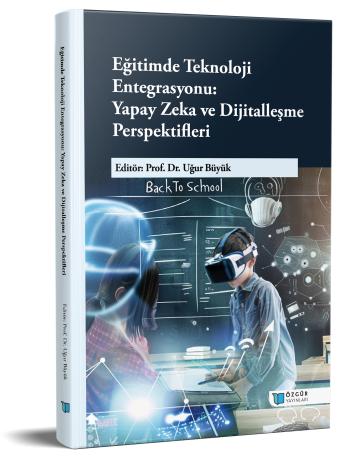
The Posthumanism Paradigm: The Search for Meaning at The Intersection of Generation Z and Artificial Intelligence
Chapter from the book:
Büyük,
U.
(ed.)
2025.
Technology Integration in Education: Artificial Intelligence and Digitalization Perspectives.
Synopsis
In the digital age, Generation Z engages with artificial intelligence (AI) from an early age, constructing a posthumanist identity in which the boundaries between human and technology are redefined. This transformation raises significant questions for the Ecological Systems Approach (ESA), which addresses individual development within environmental systems, and brings forth the search for interspecies balance as an alternative to anthropocentric paradigms. This study aims to examine how Generation Z middle school students construct and interpret their experiences with AI technologies through the theoretical lens of Posthumanism. Employing a qualitative research and phenomenological design, the study involved 22 middle school students of different nationality (Turkish, Syrian, Iraqi nationalities) who took the 'Artificial Intelligence Applications I-II' course in the 2023-2024 academic year. Data collected through semi-structured interviews were analyzed using content analysis.Key findings indicate that students most frequently define AI as "human-mimicking." While likening AI to humans in problem-solving abilities, they definitively distinguish it based on an "origin difference," "not being alive," and particularly, a "lack of emotional intelligence (EQ)." This distinction can be seen as Gen Z's early responses to the existential questions central to posthumanist discussions. Regarding personal data security, while some participants expressed concern, others did not, showing a differentiation in risk perceptions. It has been determined that students primarily prefer artificial intelligence (AI) for educational purposes (via digital assistants) and for applications focused on creative thinking, such as photo and video editing. These preferences reflect AI's growing role in Gen Z's learning and digital content creation practices.The findings were discussed with relevant literature, evaluating Gen Z's AI perceptions within the Posthumanism frameworks, and recommendations for education and future research were provided.

